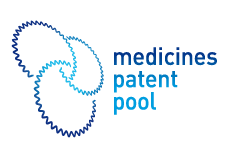
Agreement announced on World Tuberculosis Day revitalizes efforts to develop sutezolid as effective response to infectious disease killer.
NEW YORK and GENEVA, 24 March 2017 — On World Tuberculosis Day, TB Alliance and the Medicines Patent Pool (MPP) announced a licensing agreement for the clinical development of sutezolid, an antibiotic drug candidate which demonstrated encouraging results in early studies. The sublicense pertains to the development of sutezolid in combination with other TB drugs and follows the MPP’s license for the treatment signed with patent holder The Johns Hopkins University in January.
“There are precious few novel drugs available for TB therapy and therefore every promising new candidate is greeted with much enthusiasm,” said Dr. Mel Spigelman, President and CEO of TB Alliance. “With the additional positive results from our current clinical trials we can thoroughly vet sutezolid in a variety of potentially transformative new TB regimens.”
Sutezolid is in the same class of drugs as linezolid (oxazolidinones), which is used in some countries as a treatment option for drug-resistant TB (DR-TB). Tests conducted over the past decade have indicated that sutezolid may have a better therapeutic potential than linezolid.
“Sutezolid is the first TB drug in the Medicines Patent Pool’s portfolio, and we are pleased with TB Alliance’s swiftness in sublicensing the candidate,” said Greg Perry, Executive Director of the Medicines Patent Pool. “We are grateful to the civil society coalition that pushed for the clinical development of sutezolid. If further studies are successful, this product could be a game-changer in improving options for patients.”
MPP’s license with The Johns Hopkins University grants the MPP the rights to sublicense sutezolid to product developers interested in further developing the treatment for both drug-susceptible and drug-resistant TB, and to combine sutezolid with a wide variety of other drugs.
TB is the world’s top infectious disease killer. According to the World Health Organization, 10.4 million people fell ill with TB and 1.8 million died from the disease in 2015. An estimated 580,000 patients were deemed eligible for MDR-TB treatment in 2015. According to the latest available data, the MDR-TB treatment success rate is only 52 percent.
“UNITAID strongly supports the TB Alliance-Medicines Patent Pool collaboration to jump-start the clinical development of the new tuberculosis treatment sutezolid,” said Lelio Marmora, Executive Director of UNITAID, the MPP’s funder. “This World Tuberculosis Day, we must re-double efforts to find better, faster-acting treatment solutions, especially for resistant forms of the disease.”
Access the licensing agreement
TB Alliance (Global Alliance for TB Drug Development)
TB Alliance is a not-for-profit organization dedicated to finding faster-acting and affordable drug regimens to fight tuberculosis (TB). Through innovative science and with partners around the globe, we aim to ensure equitable access to faster, better TB cures that will advance global health and prosperity. TB Alliance operates with support from Australia’s Department of Foreign Affairs and Trade, Bill & Melinda Gates Foundation, Germany’s Federal Ministry of Education and Research through KfW, Global Health Innovative Technology Fund, Irish Aid, Indonesia Health Fund, National Institute of Allergy and Infectious Disease, Netherlands Ministry of Foreign Affairs, UNITAID, United Kingdom Department for International Development, United States Agency for International Development, and the United States Food and Drug Administration. For more information, please visit: www.tballiance.org
About the Medicines Patent Pool
The Medicines Patent Pool is a United Nations-backed public health organisation working to increase access to HIV, viral hepatitis C and tuberculosis treatments in low- and middle-income countries. Through its innovative business model, the MPP partners with industry, civil society, international organisations, patient groups and other stakeholders to prioritise, forecast and license needed medicines and pool intellectual property to encourage generic manufacture and the development of new formulations. To date, the MPP has signed agreements with eight patent holders for twelve HIV antiretrovirals, an HIV technology platform, one hepatitis C direct-acting antiviral and one tuberculosis treatment. Its generic partners have distributed four billion doses of low-cost medicines to 125 countries. The MPP was founded and remains fully funded by UNITAID. http://www.medicinespatentpool.org
Source: Medicines Patent Pool